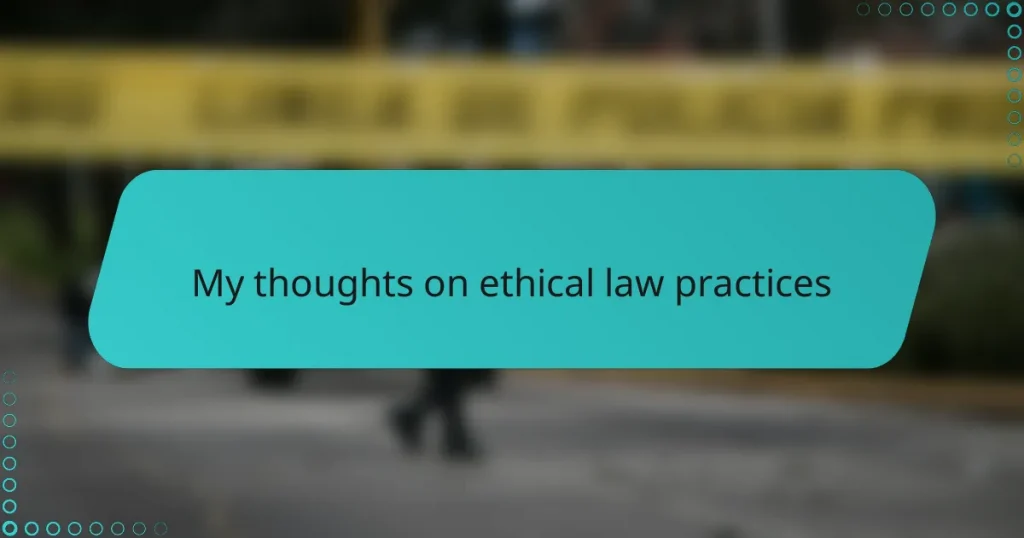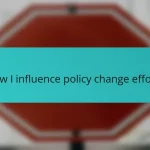Key takeaways
- Ethical law practices are integral to building trust and genuine connections between lawyers and clients, emphasizing the importance of honesty and respect.
- Key principles of legal advocacy include zealous representation, transparency, and a commitment to the integrity of the justice system, highlighting the balance between passion and ethical conduct.
- Addressing ethical challenges requires ongoing self-reflection, active listening, and transparent communication, helping advocates navigate complex situations responsibly.
- Promoting integrity in legal practice fosters a culture of ethical behavior and inspires trust, emphasizing the importance of fairness and accountability in every interaction.
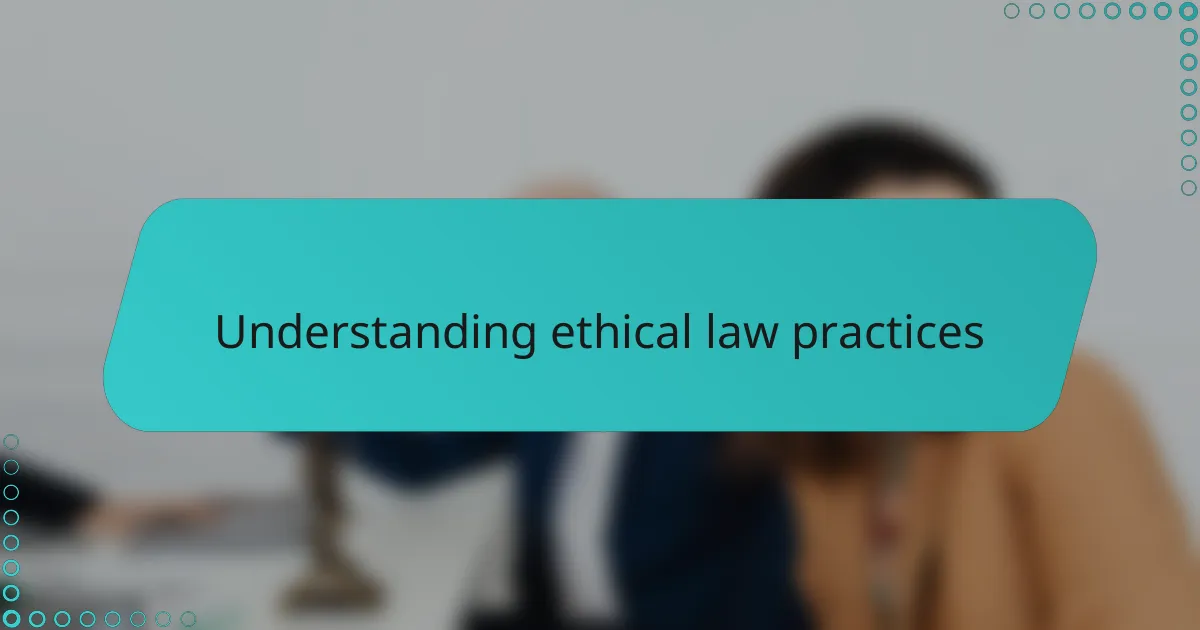
Understanding ethical law practices
Ethical law practices, to me, are the backbone of genuine legal advocacy. It’s not just about knowing the rules; it’s about living by them, even when no one is watching. Have you ever wondered what it feels like to stand firm on your principles in the face of pressure? That moment, in my experience, defines a lawyer more than any court victory ever could.
I’ve seen firsthand how a commitment to ethics changes the way clients trust and connect with their advocate. It’s reassuring to know that the pursuit of justice isn’t just a profession but a moral compass guiding every action. This trust is fragile, yet incredibly powerful—built on honesty, respect, and a clear understanding of right versus easy.
Understanding ethical law practices means recognizing where the lines are drawn and respecting them unconditionally. It requires constant reflection and a willingness to challenge oneself, which can be both daunting and rewarding. Isn’t that ongoing self-check what makes ethical advocacy so challenging—and in my eyes, so essential?
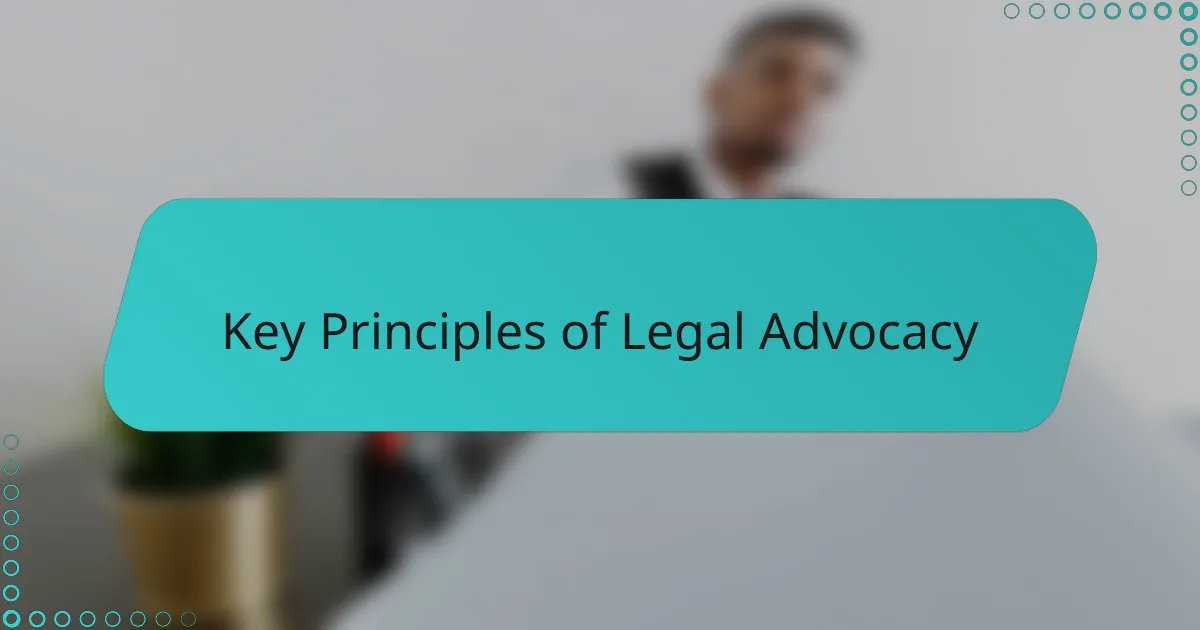
Key principles of legal advocacy
Legal advocacy, in my experience, hinges on a few key principles that go beyond mere strategy. One of the most vital is zealous representation—advocating passionately for your client’s interests, but always within the bounds of honesty and respect. Have you ever felt that tension between fighting hard and staying true? That balance is where true advocacy lives.
Another principle I hold close is transparency. When I’m upfront with clients about the realities of their case, even if the news is tough, it builds a foundation of trust that no courtroom victory can replace. This honesty often means navigating difficult conversations, but I believe it’s what separates advocacy from mere legal maneuvering.
Lastly, I think about the responsibility to the broader justice system. Every time I step into a case, I remind myself that my actions contribute to the integrity of our legal system. It’s not just about winning today—it’s about preserving fairness for tomorrow. Have you considered how small decisions in advocacy ripple far beyond the courtroom? To me, that awareness is indispensable.
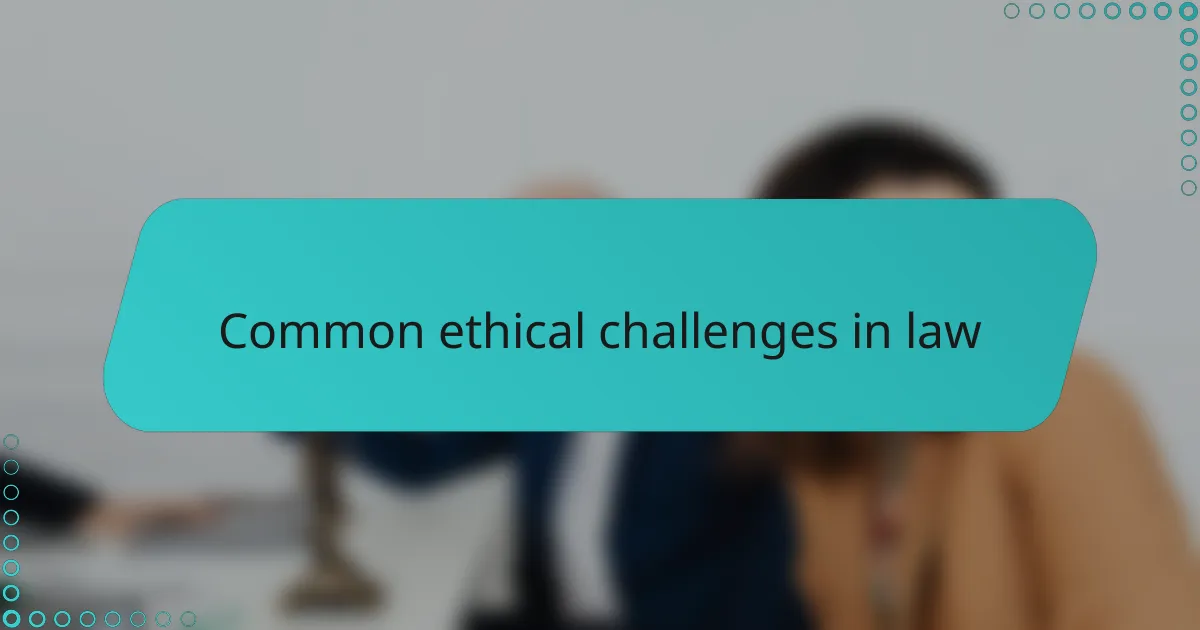
Common ethical challenges in law
Ethical challenges in law often arise where personal values meet professional demands. I’ve wrestled with situations where client confidentiality felt at odds with the larger good—those moments test not just your knowledge but your very judgment. Have you ever faced a decision that made you question whether following the rules was truly enough?
Conflict of interest is another common hurdle. Early in my career, I recall a case where the boundary wasn’t clearly drawn, and navigating that gray zone required honest self-reflection and hard conversations. It taught me how crucial it is to recognize and address these conflicts head-on before they undermine trust.
Sometimes, the pressure to win can cloud ethical clarity. I’ve seen colleagues pushed to bend rules or withhold information, but holding fast to integrity always proves more rewarding, even if it feels like swimming upstream. Isn’t it fascinating how the hardest choices often define the strongest advocates?
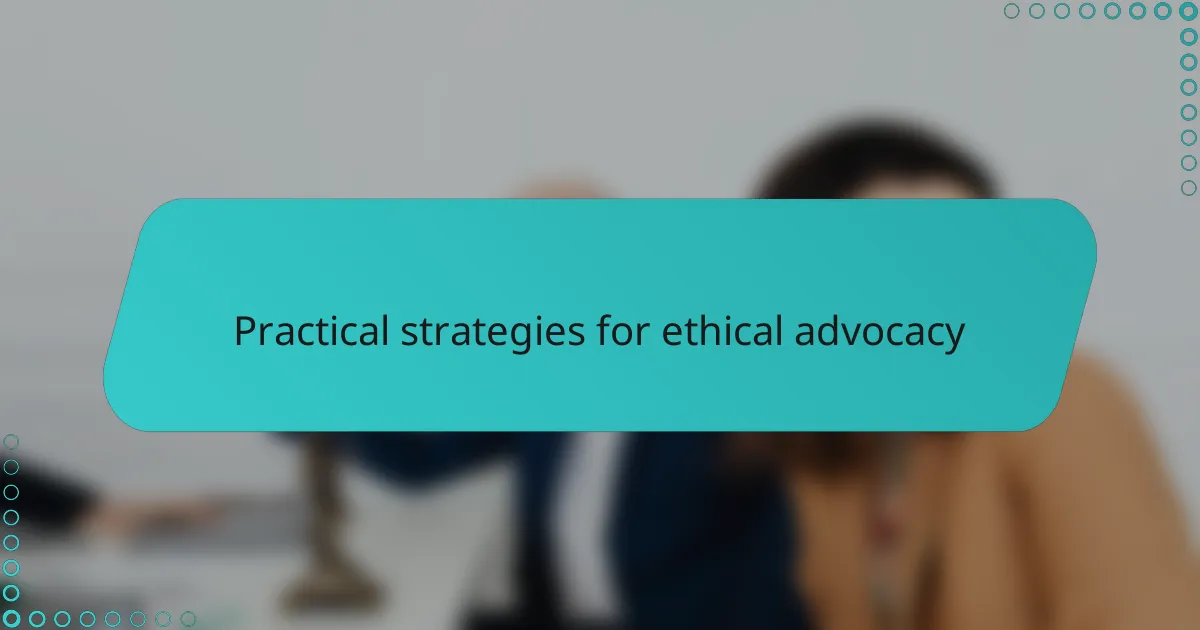
Practical strategies for ethical advocacy
Practical strategies for ethical advocacy often start with active listening. I’ve found that truly hearing a client’s concerns—not just their facts—helps me tailor my approach without compromising integrity. Have you noticed how this deep attention sometimes reveals ethical nuances you might otherwise miss?
Another strategy I rely on is transparency paired with documentation. Being clear about potential conflicts or limitations from the outset, and recording those conversations, builds trust and safeguards both the client and myself. It can feel uncomfortable at times, but I’ve learned it’s far better than dealing with surprises down the road.
Finally, continual self-reflection acts like a compass in murky situations. After tough cases, I take time to ask, “Did I uphold my principles?” This practice isn’t just about guilt or regret; it’s about growth. Have you tried stepping back and evaluating your decisions honestly? In my experience, it keeps ethical advocacy alive and evolving.
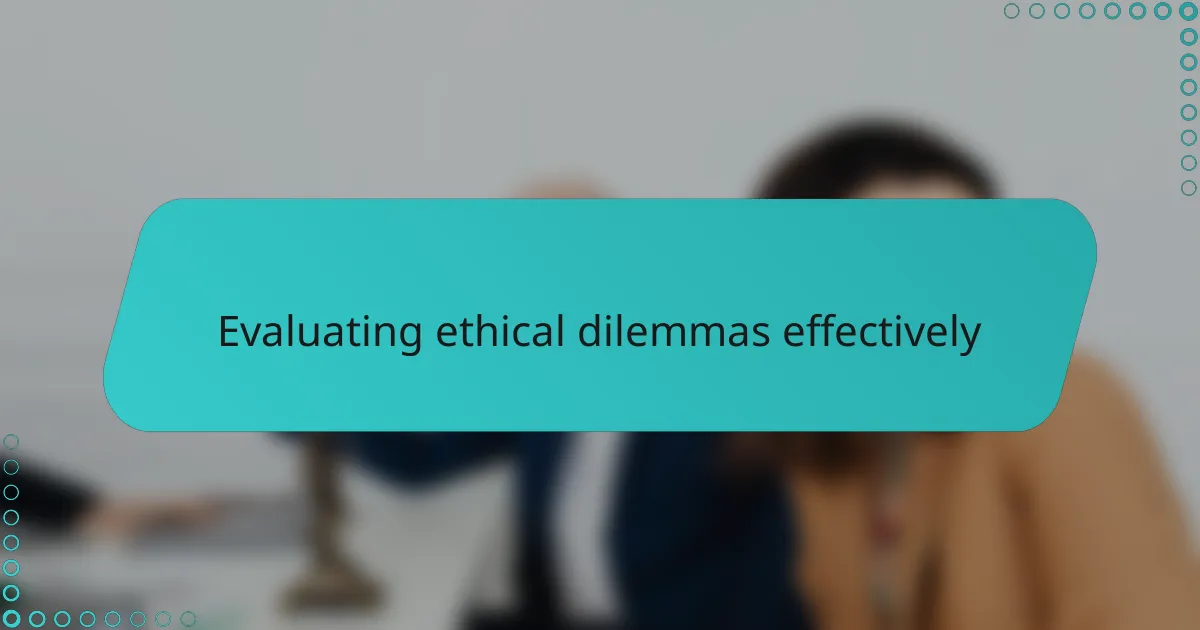
Evaluating ethical dilemmas effectively
Evaluating ethical dilemmas effectively, in my view, begins with pausing to truly understand the complexities involved rather than rushing to a decision. I remember facing a case where the right choice wasn’t clear-cut, and taking that moment to weigh all perspectives saved me from a potential misstep. Have you ever noticed how stepping back can reveal shades of gray you might have missed initially?
I also believe that discussing dilemmas with trusted colleagues can illuminate blind spots. Early on, I hesitated to ask for advice, fearing it might show weakness, but those conversations actually strengthened my ethical judgment. It’s incredible how shared experience builds a more solid foundation for decision-making.
At the core, effective evaluation demands honest self-examination and a willingness to confront uncomfortable truths about our own biases or assumptions. It’s not easy—I’ve found it’s like looking in a mirror that sometimes distorts—but isn’t that discomfort exactly what fuels growth and better choices?
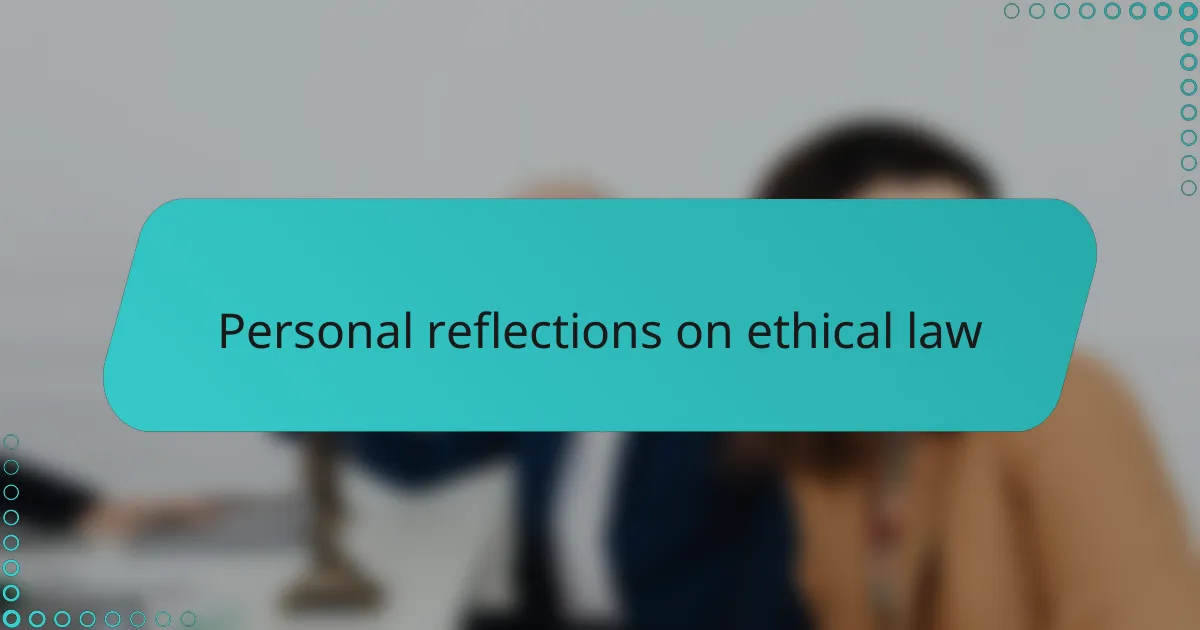
Personal reflections on ethical law
Ethical law, to me, is less a checklist and more a daily commitment—a promise I make to myself and those I represent. I recall moments when choosing integrity meant losing a quick win, yet those decisions brought a deeper sense of professional pride. Have you ever experienced that quiet confidence that follows doing the right thing, even when it’s the harder path?
Sometimes, it feels like walking a tightrope between legal obligations and personal morals. I’ve faced cases where what the law allowed and what my conscience demanded weren’t perfectly aligned. Navigating those inner conflicts has taught me that ethical practice is as much about self-awareness as it is about rules.
Looking back, the most profound lessons in ethics came not from textbooks but from real conversations with clients whose futures hung in the balance. Those exchanges reminded me that ethical law isn’t just about legislation—it’s about humanity, trust, and responsibility. How often do we pause to recognize that before the case file, there’s a person relying on our integrity?
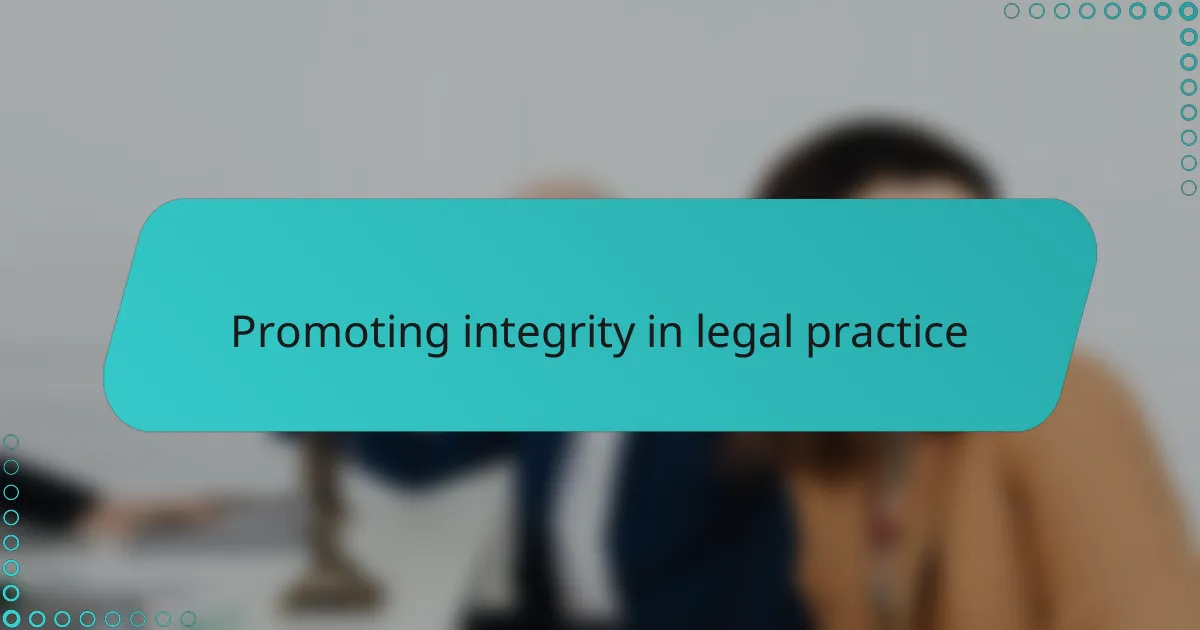
Promoting integrity in legal practice
Promoting integrity in legal practice, to me, is about more than just following a code—it’s about embodying honesty and fairness in every interaction. I remember a case early on where a tempting shortcut could have sped things up, but choosing transparency instead strengthened my client’s trust in a way that no quick win ever could. Isn’t that trust the true currency of our profession?
I also believe integrity requires courage—the kind that pushes you to speak up even when the easy path beckons. Have you ever felt that silent pressure to bend the rules just slightly? I have, and each time, standing firm became a defining moment in my career, shaping not just outcomes, but my own sense of professional identity.
Ultimately, promoting integrity means creating a culture where ethical behavior isn’t the exception but the norm. It’s about inspiring colleagues and clients alike to see that doing what’s right fuels lasting respect and meaningful justice. Don’t we all want to be part of that kind of legal legacy?
